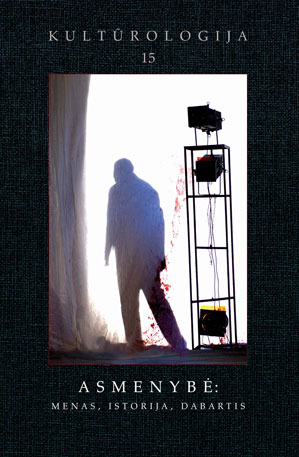Vilniaus vunderkindas Julianas Klaczko: nuo hebrajiškai lenkiškos jaunystės iki universalios kultūros
Vilnius Wunderkind Julian Klaczko: From a Hebrew Polish Childhood to Universal Culture
Author(s): Zbigniew BaranSubject(s): Cultural history
Published by: Lietuvos kultūros tyrimų
Keywords: Julian Klaczko
Summary/Abstract: What is exile? Though this concept has a clear negative connotation, in Leszek Kolakowski's study "The Glorification of Exile", he claims the exact opposite: it’ s hard to imagine the development of European civilization without exiles. Political or religious refugees gave a brilliant live impulse to the countries they came to, while the refugees themselves, in the face of extreme situations, revealed their talents and gifts. The Jews are a prime example of this: European civilization received the greatest benefit from the "exile of the Jews". Kolakowski writes that "While they were alive, they (Jews) preserved their identity in the shell of complicated rituals and taboos (possibly the host of complicated laws helped them to survive: a pious Jew could not live among foreigners and at the same time keep his own traditions, their numbers alone forced Jews to live in the community and didn't allow them to assimilate into the Christian society), could develop many famous commentators on the Talmud and scriptures, while their culture was alive in a closed enclave". Kolakowski's view allows us to objectively at the problem of exile through Julian Klaczko (1825-1906), one of the first Polanized Jews. Alexandr Hertz in his book "Jews in Polish Culture" names Klaczko "one of the first famous Polish writers of Jewish origin". Julian Klaczko was a political writer, literature critic and journalist, who merited internetional fame, and wrote in Polish and French. Born and raised in Vilnius, he studied at Konigsberg University and Heidelberg University, and lived in Vienna, and Paris, and died in Cracow. He was an exile in two ways: first of all because he rejected Jewishness, Hebrew and his first religion, and because he chose a dependence on another wandering and pilgrim-like nation. The article claims, that this is the source of his inner drama, and feeling of instability, but at the same time with the ability to feel the Polish psiche and as yet-unheard-of European career for a Polanized Jew. The universal theme that the author of this article looks at is assimilation. Julian Klaczko becomes a type of psychological-sociological model, which explains the complicated process of the Polanization of Jews.
Journal: Kultūrologija
- Issue Year: 2007
- Issue No: 15
- Page Range: 27-45
- Page Count: 19
- Language: Lithuanian

